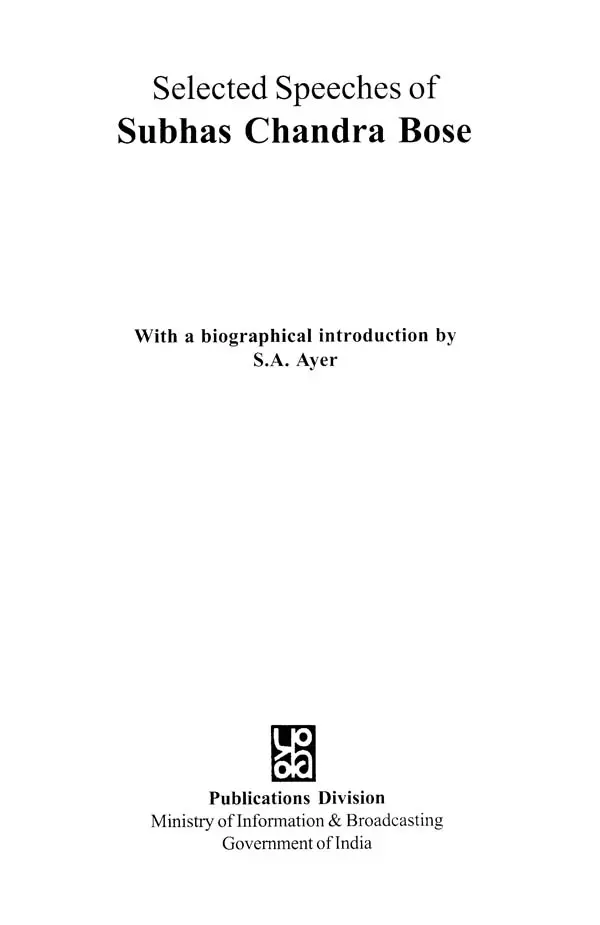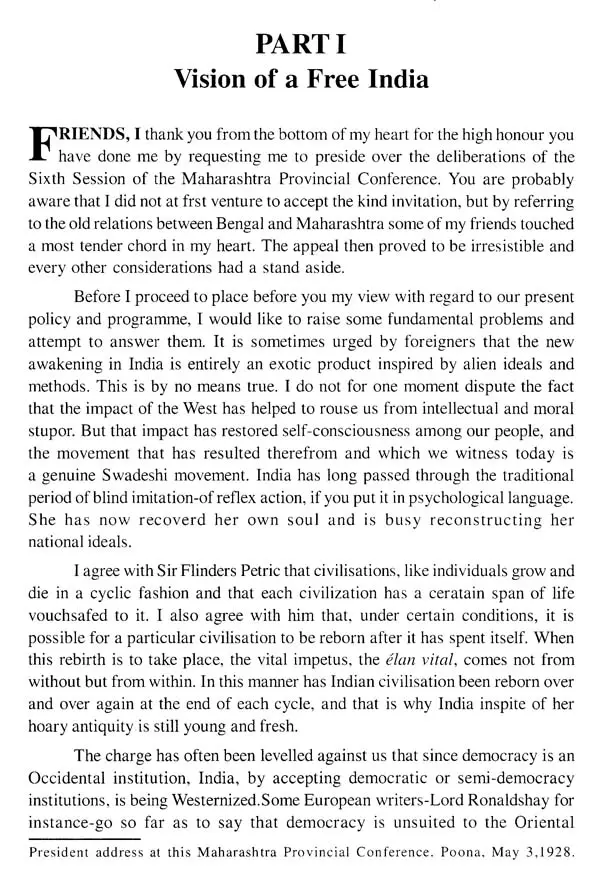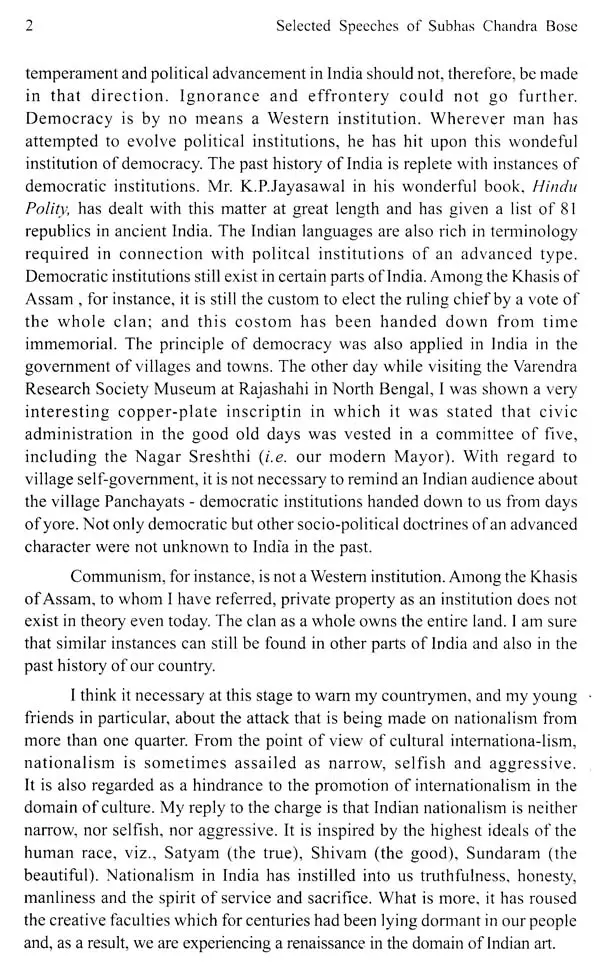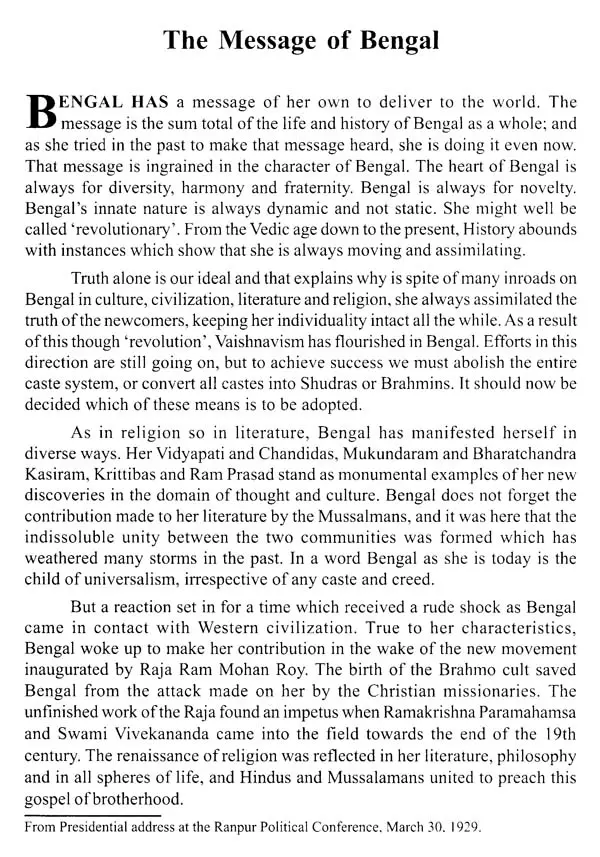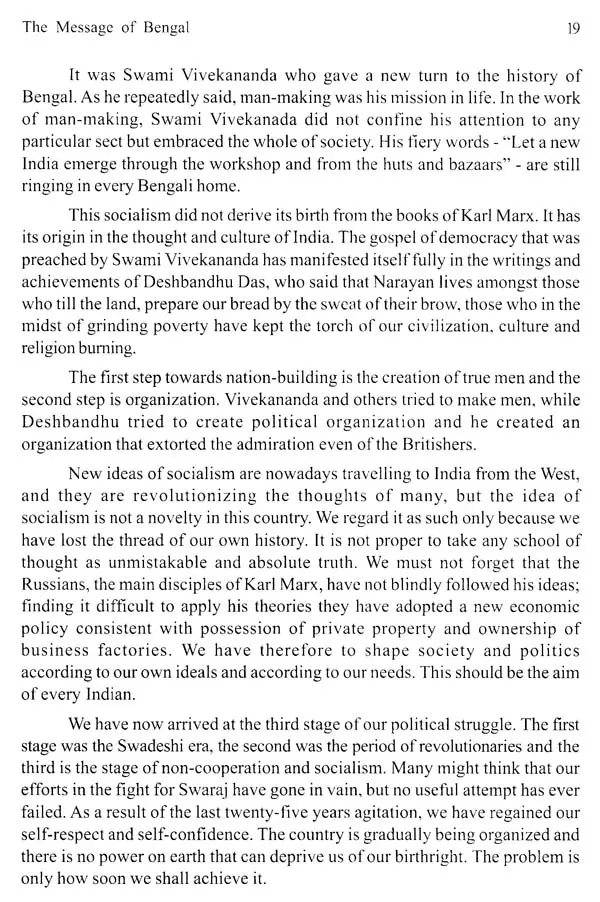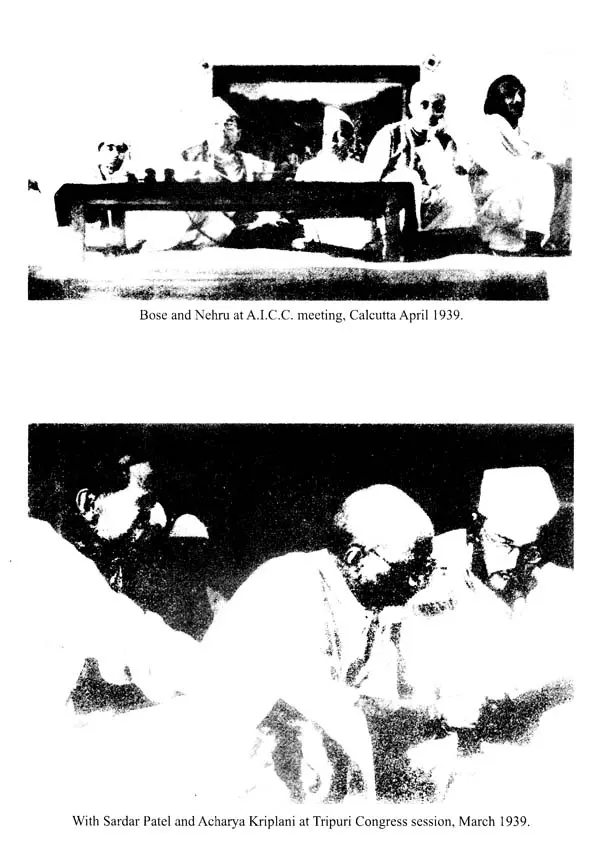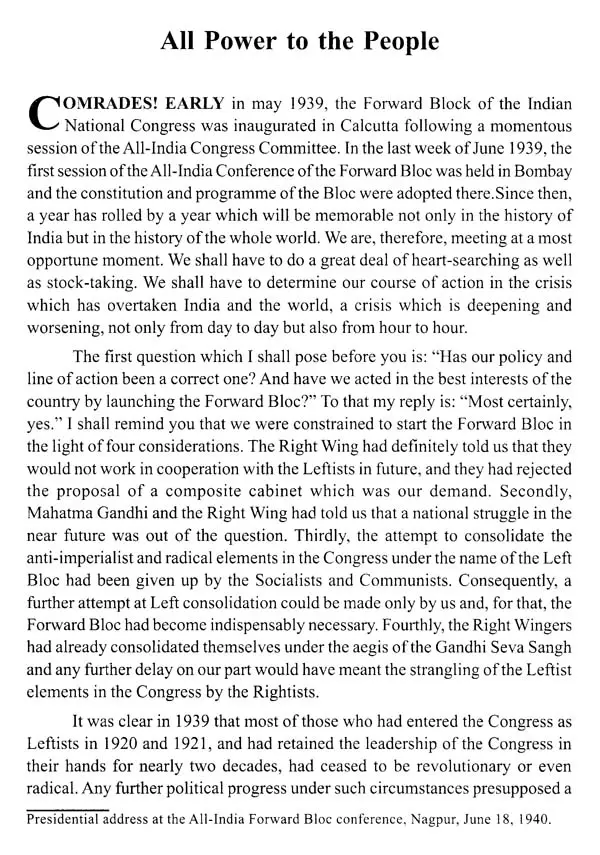
Selected Speeches of Subhas Chandra Bose
Book Specification
| Item Code: | UAJ834 |
| Author: | S. A. Ayer |
| Publisher: | Publications Division of Ministry of Information and Broadcasting |
| Language: | English |
| Edition: | 2013 |
| ISBN: | 9788123018584 |
| Pages: | 282 (Throughout B/W Illustrations) |
| Cover: | PAPERBACK |
| Other Details | 9.50 X 6.50 inch |
| Weight | 460 gm |
Book Description
The book contains selection of speeches by Subhas Chandra Bose with an introductory sketch by S.A. Ayer giving a full narrative of his life and achievements and important events that shaped the course of his life.
The speeches highlight the oratory and leadership qualities of Subhas Chandra Bose, his fear lessness and his burning patriotism, his tireless efforts to free India from inside and outside and his reckless adventures in trying to reach his goal.
EVENTS HAVE proved that Netaji was a born rebel and revolutionary Ethat when a son was born in the Cuttack home of Janakinath and Prabhabati Bose on 23rd Jumuary, 1897, they must have little dreamt that this visth son and ninth Child of theirs was destined to leave an indelible mark on India's history. It did not, however, take the parents long to realize that this particular son, Subhas Chandra, was very different from his horthers and sisters and from other children of his age.
Netaji's family history could be traced back for some 27 generations to Dasaratha Bose who founded the Dakshi-Rarhi (South Bengal) clan of the Boses at Mahinagar, 14 miles to the south of Calcutta. Artong Netaji's paternal ancestors were Mahipati, Finance and War Minister to the then king of Bengal; and Gopinath, Finance Minister and Naval Commander to a later king of Bengal. Netaji's paternal grandfather, Haranath, had four sons, Jadunath, Kedamath, Devendranath and Janakinath, Netaji's father.
Netaji's mother, Prabhabati, belonged to the faimly of Dutts of Hathkola, a northern quarter of Calcutta. In the early days of British rule, the Dutts attained eminence by virtue of their wealth and their ability to adapt themselves to the new political order. Prabhabati's father, Ganganarayan Dutt, and grandfather had a reputation for wise selection of their sons-in-law and made alliances with the leading aristoratic families of Calcutta. The story goes that before Ganganarayan agreed to give his daughter, Prabhabati, in marriage t Janakinath, he put the latter through a severe intelligence test and satisfied himself.
**Contents and Sample Pages**
